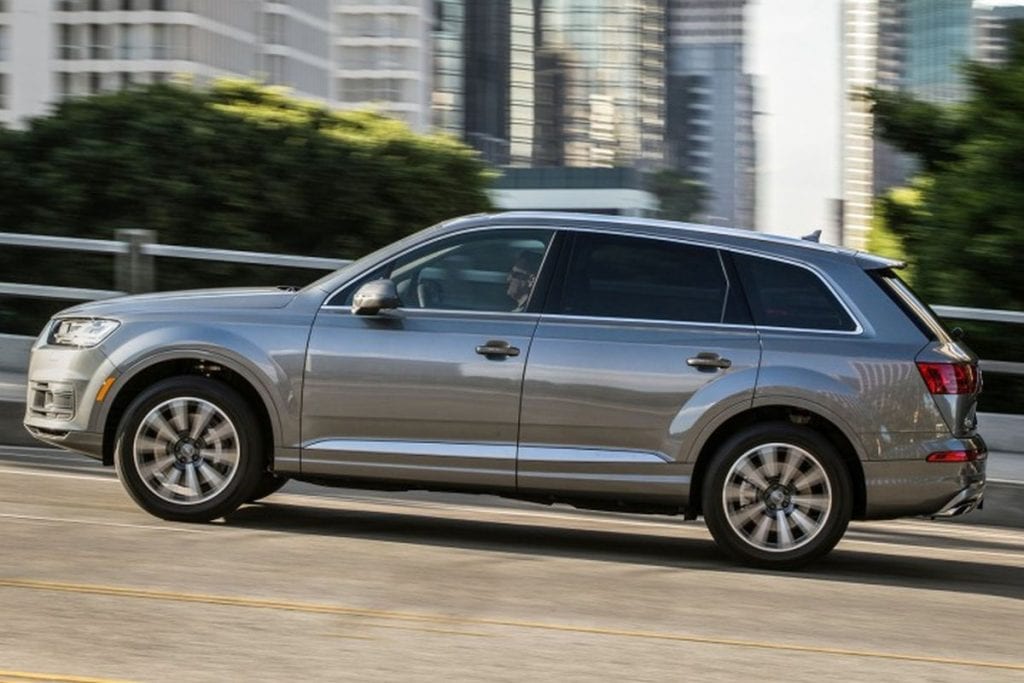It’s been 11 years since Audi first joins the large SUV market. We first saw the Audi Q7 back in 2005 when it was unveiled at the Frankfurt Motor Show. The North American market for this car happened in 2007. During its lifespan, the Q7 has received a lot of upgrades, both visual and mechanical, keeping it up to date and at the top of its segment. We’ve seen everything from 3.0-liter V6’s to large 6.0-liter V12’s being crammed into its engine bay. Well, 2017 seems to be the biggest year for the Q7 as of yet, with what is probably the largest visual upgrade but also a completely new model.
Besides the brand-new styling for 2017, there’s a revamped cabin and improved powertrains. The new generation also sees the debut of the plug-in hybrid Q7. It took Audi 10 years to put finally the Q7 e-on concept we saw into production but at last, they did it. The real importance of the hybrid only becomes obvious when you realize it’s the first Audi diesel hybrid, but also the first diesel hybrid in the up-market SUV class.
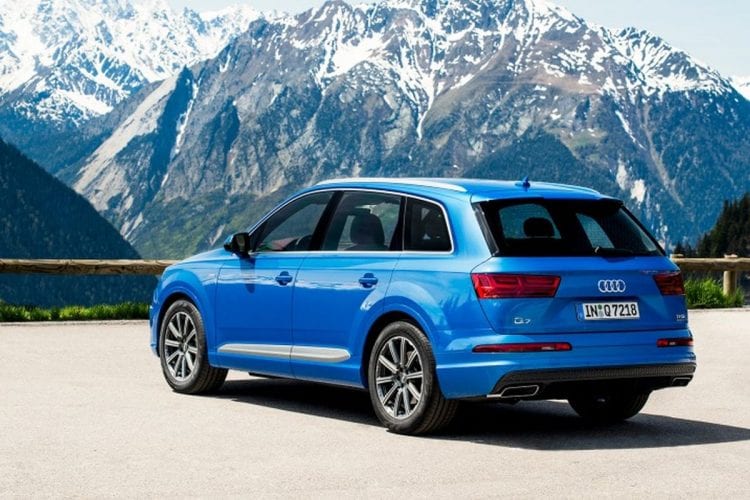
Styling
Styling wise, the Q7 is one handsome beast. Audi proves that it can design a large vehicle which is aggressive and good looking, much more so than the old outgoing Q7. Even the previous generation offered interesting looks we are now getting far more. The lines are a lot sharper, turning and dipping at every opportunity they get. It blends its squared and angular surfaces at the front and the rear a whole lot better. It’s a beautiful design, unique in its element, but still not deviating a lot from the classic Audi modern styling. It’s a special vehicle, but you can instantly recognize it as an Audi, even if you’re not that much into cars.
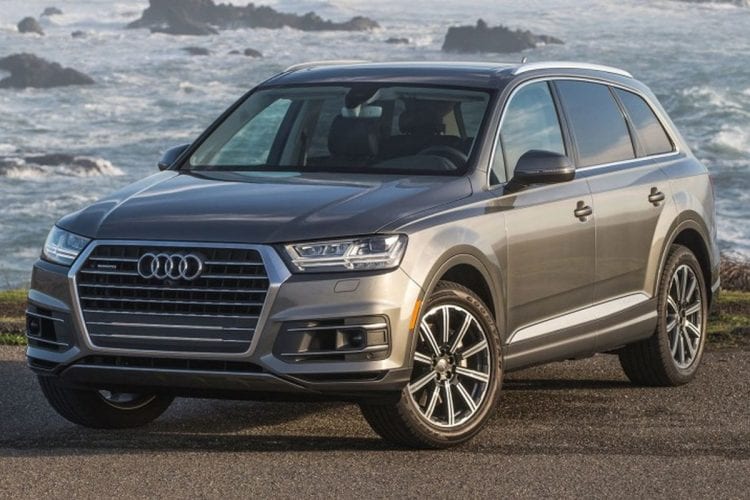
The front fascia is still dominated by that large grille, the new improved headlights, and the pretty tall bumper. The intakes are similar to the 2015 model, but the lines on them are angled more downwards. The massive grille we mentioned now connects to the headlights, giving the car a mesmerizing look. The overall impression is that it is one sleek and refined SUV with a decent amount of aggressive look.
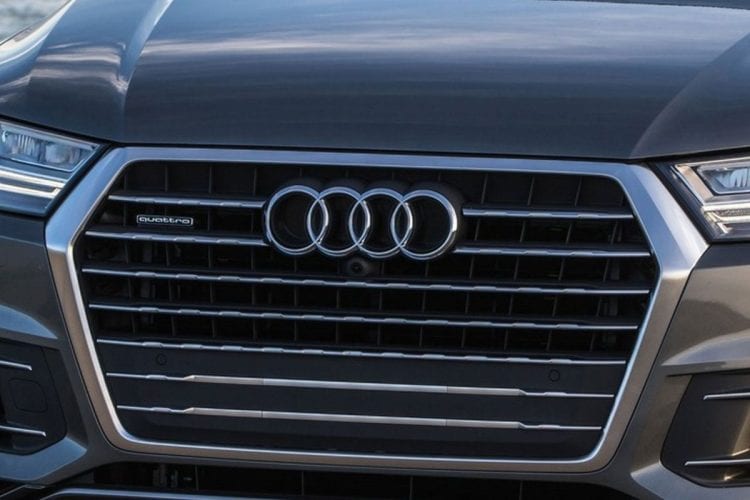
The back sees a similar tailgate and bumper to the old version. The taillights have been reshaped and now are narrower, and there are different exhaust pipes. The waistline is now much sharper, giving a fresher look. The overall size of the Q7 has been slightly reduced, although you certainly wouldn’t be able to tell that from the inside. Oh, and speaking of size, all that decrease and use of lighter materials saw the new Q7 lose some 220 pounds, a significant improvement in such a large vehicle. You can be sure that this will be resulting in higher efficiency, better handling, and improved performances.
Interior
Like we said, the interior is now even more special and roomier. Despite the cutback on the exterior dimensions, inside it’s actually longer offering additional 1.6 inches of room up front and 0.9 inches in the back. The cargo capacity has also gone up and is now 10.4 cubic feet in the seven-passenger Q7 behind the third row. Folding the seats down sees it go up to 27.2 cubic feet. The five-seater Q7 has 31.4 cubic feet of room, or 73.3 when the second row is folded flat. Now that’s what we call massive.
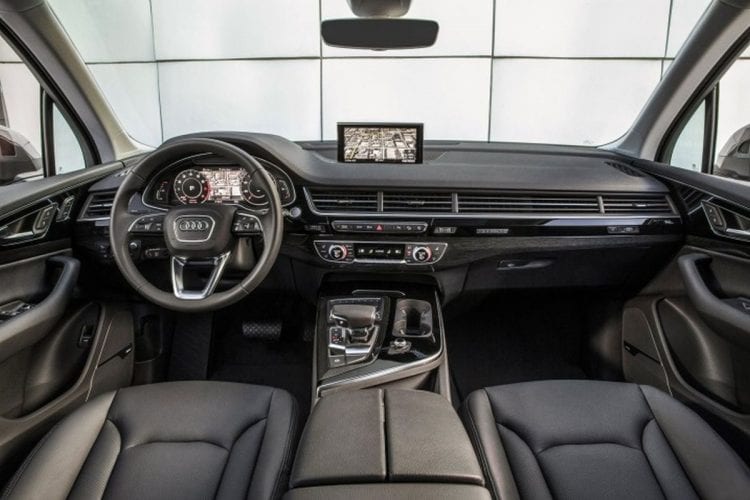
For those who though the exterior wasn’t too radical, especially compared to the old car, all you have to do is take a look at the interior of the Q7. It’s been massively upgraded, restyled and improved to offer more in every measurable way. The bulky design for the center stack which most people hated is now gone, and it’s replaced by a tall center console right in the middle. The entire dashboard seems slimmer and therefore much more elegant. The old slightly clumsy steering wheel is gone and in its place, we find a new three-spoke steering wheel which is not just a lot better looking but offers more control too.
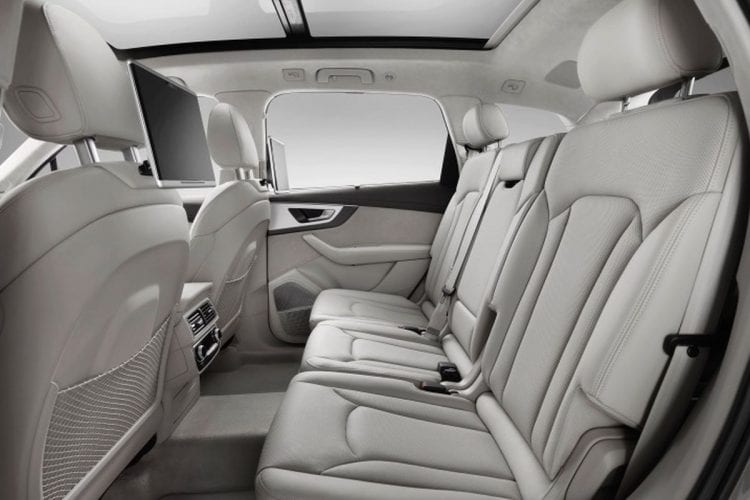
Elsewhere, you get even more comfortable seats and a lot of space, even in the third row of seats. There’s more than enough headroom and legroom in all rows, even for taller occupants, so you are getting a possibility to transport a larger number of people in decent enough comfort.
2017 Audi Q7 Engines
The new Q7 launches with five engine choices. The first two units are gasoline. There’s a 2.0-liter four-cylinder, naturally with a turbocharger, developing 252 hp and 272 lb-ft of torque. It’s the same 2.0 TFSI engine we find in the GTI and the likes, but this one is most likely to be only popular in the U.S. With the hybrid engine here, it certainly won’t be the most economical choice in the entire range, but from the petrol version, it will. It should be plenty fast enough for most people although those wishing more power might want to go for the V6.
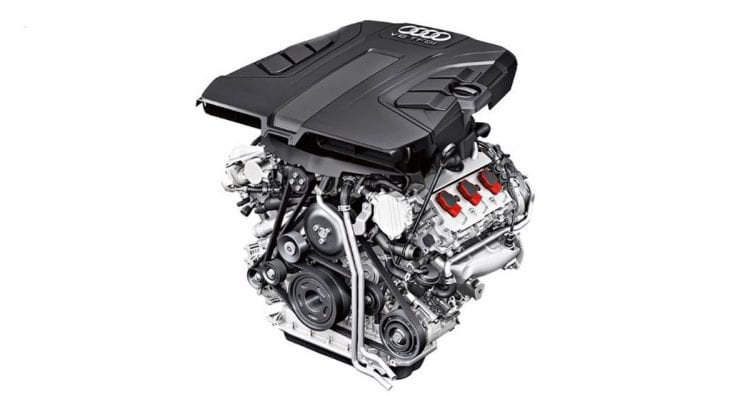
The gasoline V6 develops 333 hp and 325 lb-ft of torque thankfully to the supercharger. It can accelerate the Q7 from 0 to 60 mph in just 6.1 seconds, and it will go on to a limited top speed of 155 mph. The 4.2 V8 has been dropped, so the V6 is now actually the most powerful petrol engine. It will return 30 mpg, so even the fuel economy is not bad at all.
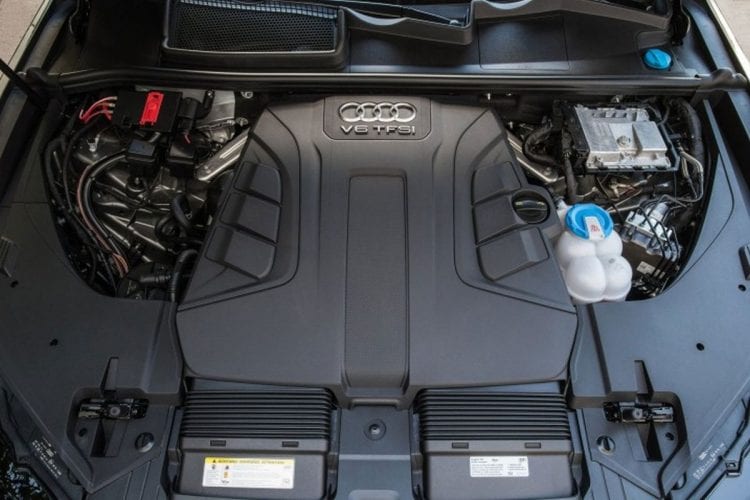
The diesel engine is a 3.0-liter TDI V6 in multiple guises. The most potent one has 272 hp and 442 lb-ft of torque. It reaches 62 miles per hour in 6.3 seconds, and the top speed is 145 mph but only because it’s limited to that. It returns 41 miles per gallon which is a fantastic result.
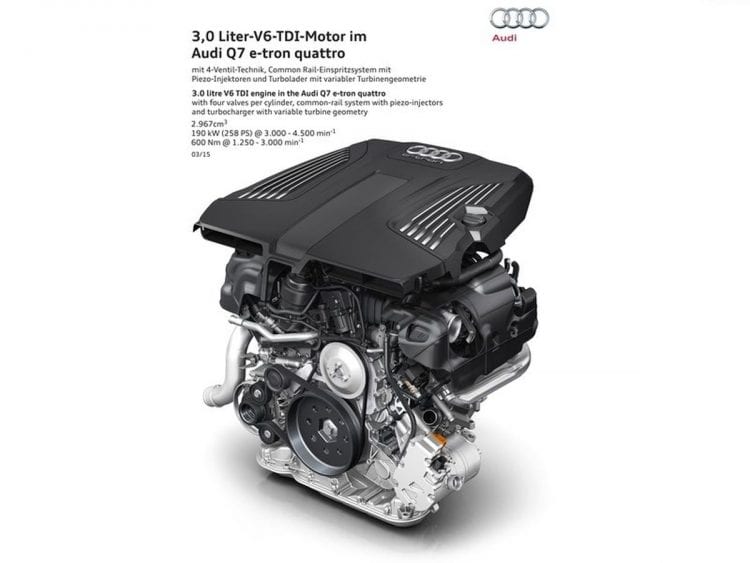
Lastly, we have the hybrid. It too uses the 3.0 TDI unit, but in the hybrid form it punches out a slightly less power at 258 hp. It is paired with a 94 kW electric engine, however, so that’s a big plus. The electric motor is built into the transmission. The combined power is 373 hp and 516 lb-ft of torque. In hybrid form, it delivers 138 mpg (no, we’re not making it up, but have in mind that this is a result from European fuel economy test), will reach 62 in 6 seconds flat and can travel 35 miles on electric power alone.
Prices for Audi Q7 start at around $55,000 for the base model but go up substantially once you start adding gadgets and toys, or if you go for a more powerful engine option. Still a great buy.
Read more info about Audi Q7 at wikipedia.org.

